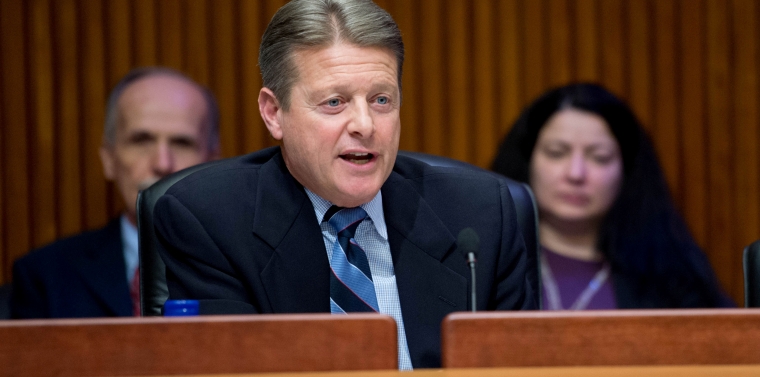
ALBANY — State Sen. Patrick M. Gallivan has been appointed to the Senate Majority Task Force on Counterterrorism and Public Protection. Senate Majority Leader John Flanagan announced the creation of the Task Force, which will analyze current counterterrorism and public protection measures that have occurred since Sept. 11, 2001. The group will also make recommendations for future legislative and administrative actions that will promote the improved public safety of all New Yorkers.
“I am honored to serve as a member of this important task force,” Gallivan said. “As Sheriff of Erie County at the time, I assisted investigators at Ground Zero in the days after 9/11 and will never forget the devastation caused by the attacks on our state and our country. We know that terrorists can strike anywhere, at anytime, but we also realize that New York remains a real target. That’s why we must remain vigilant in preventing future attacks and keeping our citizens safe from terrorist’s activities. I look forward to working with my colleagues in the Senate to review New York’s counterterrorism efforts.”
The senator also serves as Chair of the Senate’s Crime Victims, Crime and Corrections Committee.
The Task Force will focus on the prevention, response, and recovery responsibilities of the state and will include: emergency preparedness plans; critical infrastructure protection; cyber security; state/local counterterrorism; school, electrical power grid, telecommunication, and coastal waterway/port security; epidemic response; police capital support; and financial recovery response.
Joining Gallivan on the Task Force are senators, Thomas Croci (R, Sayville), Andrew Lanza (R-C-I, Staten Island), Martin Golden (R-C-I, Brooklyn), Simcha Felder (D, Brooklyn), Kemp Hannon (R-C-I, Nassau), Joseph Griffo (R-C-I, Rome), and Joseph Robach (R-C-I, Rochester).
Following its initial reviews of counterterrorism and public protection activity over the last 15 years, the Task Force will perform research, visit critical infrastructure and public protection sites, conduct private interviews, and hold public roundtables and meetings to examine what has worked and what can be done better.
A final report with findings, conclusions, and legislative and administrative recommendations will also be published.

